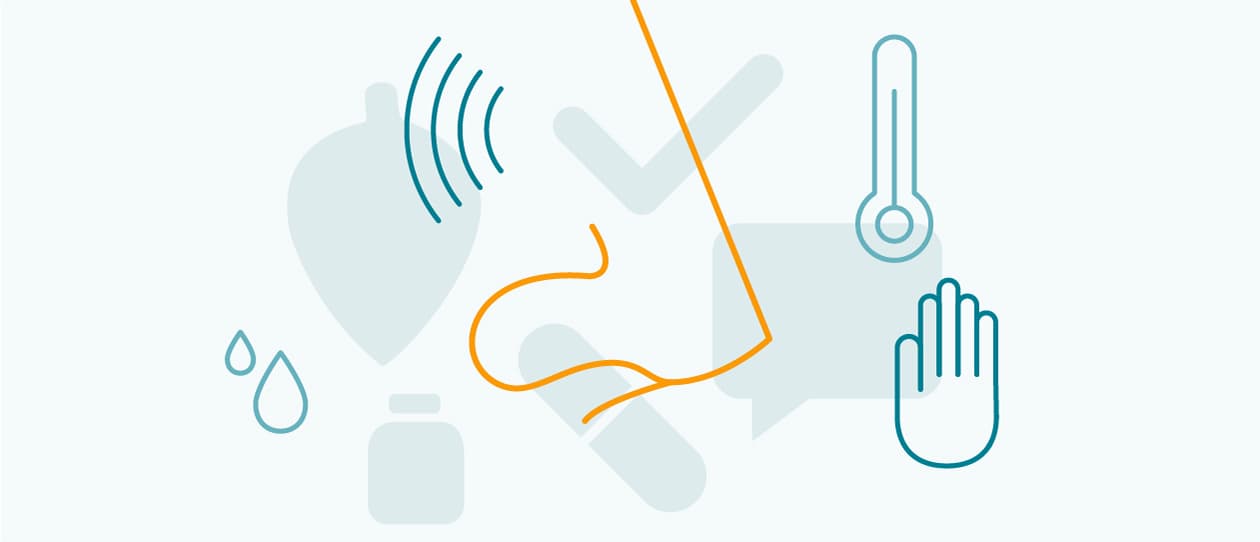


- Runny or congested nose, often with sneezing.
- Red, watery, itchy eyes, which may be swollen. Dark circles or bags may be present under the eyes.
- Itching of the nose, throat and roof of the mouth.
- Nasal and sinus mucous discharge (some of which may be swallowed, causing nausea and coughing) .
- Blocked ears.
- Voice may change, taking on a ‘nasal’ quality, and sense of smell may be impaired.
- Concentration may be difficult, and the sufferer may be tired due to poor sleep or may generally feel unwell.
- Asthma, wheezing, nosebleeds and headaches may occur.
- Secondary bacterial infection of the sinuses or ears may develop.
- Symptoms may occur seasonally (especially during spring and summer). The symptoms of perennial rhinitis tend to be more persistent but less severe than those of seasonal rhinitis.
- There is a strong association between hay fever and other allergic conditions, and it is common for sufferers and/or members of their immediate family to also experience eczema and/or asthma.
Hay fever is caused by an airborne allergen coming into contact with the mucous membranes of the nose and sinuses, triggering an allergic reaction that involves the release of histamine. This in turn causes the mucous membranes to become inflamed and secrete large quantities of mucous.
Seasonal hay fever involves pollens and grasses, and consequently is more likely to occur during spring and summer, when increased levels of pollen are present in the atmosphere.
Perennial rhinitis involves other inhaled allergens such as pet hair, dust mite or mould, and symptoms tend to be constant throughout the year.
- The best way to combat hay fever is to identify the allergens that trigger the symptoms, and then avoid them. Work with your healthcare professional to determine the offending substances.
- Stay indoors as much as possible on days with a high pollen count or strong wind, and use an air conditioner if possible. If going outdoors, smear petroleum jelly on the nostrils to protect the mucous membranes from pollen.
- Rinse your eyes, hands and face with water so that any pollen is flushed away.
- Consider using a vacuum cleaner with a HEPA filter.
Note that it is inadvisable to drive, operate machinery or drink alcohol when taking some prescribed medicines for hay fever. Follow your doctor’s instructions carefully.




